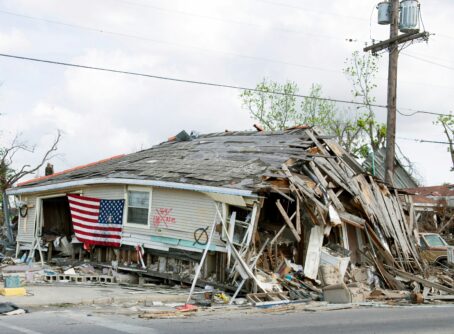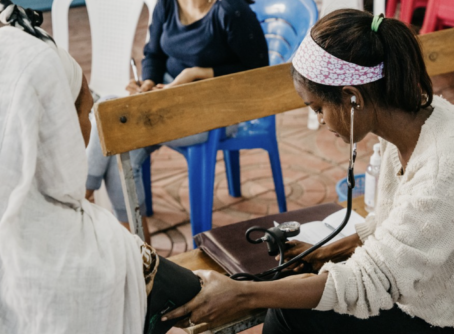
Most people alive today can credit some amount of family support for their success. No one is entirely ‘self-made,’ rather we all have been touched and shaped from infancy to adulthood by those around us. Family has a unique responsibility to help foster young people’s success, both in diverting youth from the juvenile justice system and in helping those who find themselves in juvenile justice facilities and reentering the community.
For youth vulnerable to the juvenile justice system, particularly those in over-policed and under-resourced communities, family support is vital to their wellbeing.
Under CPJ’s framework, familial relationships are not just a privilege that one receives or benefits from, but they are an essential and most basic part of the framework of society. CPJ’s Guideline on the Family states that “The family bond holds for the lifetime of its members and reaches back to grandparents, ahead to grandchildren, and out to aunts, uncles, and cousins.” In other words, familial relationships are a part of God’s design for flourishing. Family includes the nuclear family unit, and broadens to include extended family and chosen family (those who are actively invested and involved in the young person’s life regardless of biological connection). A helpful resource from the Annie E. Casey Foundation highlights how even though public systems play an important role in helping youth navigate the justice system, the most powerful impacts on disconnected youth come from their families and communities. For youth vulnerable to the juvenile justice system, particularly those in over-policed and under-resourced communities, family support is vital to their wellbeing. The institution of the family, in many cases, can support and guide youth to flourish in whatever circumstances they face, and help cultivate youth into active and future citizens.
The Family’s Role in Youth Diversion and Restorative Justice
The Annie E. Casey Foundation outlines that relationships with supportive adults are vital for the healthy development of children and teens. Families are oftentimes the ‘front-line’ ensuring child success, and can help provide the support needed to keep young people from ever encountering the juvenile justice system. By showing interest in the youth’s life and modeling healthy community engagement, family and other trusted adults can promote healthy living and reduce chances of justice system involvement. Additionally, having the support of extended and chosen family members can provide significant relief for families in need. By offering child care, bringing meals to overwhelmed care-givers, and supporting each other in times of need, extended and chosen family members can have tremendous impact for a struggling family.
When youth find themselves in the beginning stages of juvenile justice system involvement, restorative justice acts as an alternative system, helping youth avoid formal sentencing and incarceration.
In some states, restorative justice frameworks have been developed as a way to keep young people out of the court system. When youth find themselves in the beginning stages of juvenile justice system involvement, restorative justice acts as an alternative system, helping youth avoid formal sentencing and incarceration. Restorative justice often requires community service, apologies, and restitution. However, families and communities must be willing to play a part in supporting the youth through this process and promote involvement in these alternative programs in order for this system to work, as the restorative justice framework by definition is about forming healthy social relationships.
The Family’s Role in the Juvenile Justice System and Beyond
In many states, restorative justice is not an option. Some youth will find themselves facing formal juvenile justice sentencing, but that does not mean the family no longer has a role to play. For example, according to Georgetown University Center for Juvenile Justice Reform, “The most important condition for family engagement is safety — feeling physically and emotionally safe […] it makes a difference if a family member is present because that person is compelled to be there […] or because that family member is an active and persistent advocate for the child.” By showing up throughout a young person’s court process, from sentencing to probation, family members can provide a sense of safety for youth that leads to better outcomes and strengthens their sense of community connection.
Unfortunately, it is not always as simple as “showing up.” The Annie E Casey Foundation calls attention to the fact that trauma, embarrassment, fear, or simply being overwhelmed can lead parents to be hesitant about participating in the juvenile justice process. Additionally, they highlight that mistrust in the system can lead family members to doubt that the system has their children’s or their own best interests in mind. This can result in parents not participating in the process, even where involvement might help the young person in ways unique to their situation.
It is important to remember that every family faces their own unique trials. This can sometimes, unfortunately (and sometimes unavoidably), lead to a young person not having the family support they might need while involved with the juvenile justice system. In situations like these, it is even more vital that community members and other trusted adults in these young people’s lives stand beside them as advocates and mentors. No person should be without a village to prop them up in times of need.
No person should be without a village to prop them up in times of need.
As young people exit the juvenile justice system, remember that family care is still needed. Unlike case officers, family bonds and relationships are for life. Family presence in a child’s life can help them continue healing and grow into who they were meant to be. In Tennessee for example, Tristan Slough shares how he grew up as a ward of the state, frequently being moved in and out of juvenile justice facilities. Later on in his life, he was able to earn his masters degree from an Ivy League university. He writes, “I now know I am the main reason for my own success, but I am far from the only reason. My mentors, friends and family couldn’t study for me or take tests for me, but their support ensured I was in a mental and financial position to focus on my personal growth and academic success.” Slough now uses his experience to help others and promote positive change in the juvenile justice system as student resources coordinator at the Tennessee Higher Education Initiative. By being present in their lives and their families’ lives, communities and family members can increase positive outcomes. Our responsibility is to be these young people’s village. We need to be present before, during, and after youth are involved in the justice system, so that these families and young people can not just survive an experience with the juvenile justice system, but thrive in spite of their experience with it.
Isabel Kau is a senior at Baylor University studying environmental science and political science. After graduation in Spring 2025, she plans to pursue graduate studies in environmental science and policy.





